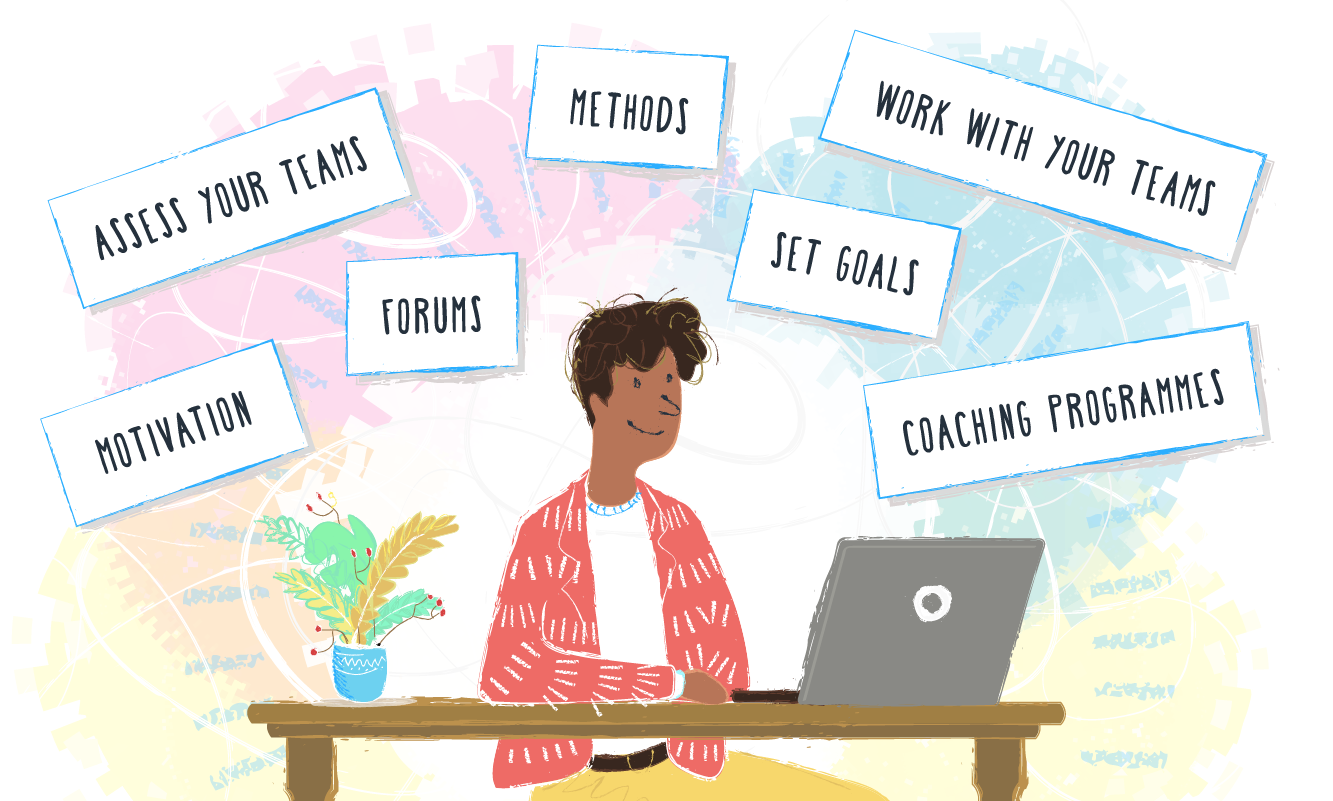Start improving with Life QI today
Full access to all Life QI features and a support team excited to help you. Quality improvement has never been easier.

Organisation already using Life QI?
Sign-up

Coaching improvement project teams can be a really rewarding process. In your role as a Quality Improvement (QI) coach you can help spread the QI message across your organisation and enable your teams to create transformational change. As a QI coach, you will have been chosen for certain attributes and for having a knowledge and passion for QI methodology.
In this article we are going to look at how you can draw on these attributes and make the most of various methods for coaching QI project teams.
There are many methods you can draw on when coaching improvement project teams and many helpful resources to support the coach. The QI team at East London NHS Foundation Trust (ELFT) and the Institute for Healthcare Improvement have impressive QI coaching programmes. You can access them to find out more about QI coaching methods and to support you when starting out coaching your teams.
ELFT programme for QI coaches encourages coaches to work with their teams as part of their day-to-day job. They also advise that you join your local QI forum which can help support learning.
The UCSF Institute for Global Health Sciences 'Coaching for Quality Improvement' report talks about how a QI coach needs to assess their team when starting coaching: ‘A good coach will assess the team carefully and will find the hook from which to begin incrementally moving them forward.’ This will allow the coach to define the team’s motivating factors for improvement and enable them to come up with a framework for progress. The initial team assessment will help them in planning their approach and to guide the team to achieve their goals.
In the article ‘Health care professional development: Working as a team to improve patient care’ the writers state: ‘In delivering health care, effective teamwork can immediately and positively affect patient safety and outcome.’ This places the development of the team at the heart of QI success and following this approach can really help support your coaching.
As you work with your team to develop their QI skills, so you will also need to develop a shared sense of responsibility. It will help support your team members to reach their goal of transformative QI change.
However, there are lessons to bear in mind when looking at developing QI teams. In the article: ‘‘Team capital’ in quality improvement teams: findings from an ethnographic study of front-line quality improvement in the NHS’, the authors report: ‘Staff who may be well used to teamworking in the context of clinical care, may find these patterns of working relationships do not transfer straightforwardly to QI, where the issues may be different.’
When coaching improvement projects teams you need to ensure that they work effectively and fulfil the expectation of the organisation. It is therefore important to keep the lines of communication open, and to keep returning – with your team – to the reasons they are working on their QI project.
Communication is vital in teamwork and also in QI. While open communication can also feed into the success of a QI project. In the guide ‘Coaching for Quality Improvement’ the writers state: ‘The key to successful coaching lies in the relationship between the coach and the clinic leadership and staff. Paving the way to an open relationship, the coach communicates frequently with the clinic in a non-threatening and empathetic manner. Providing follow-up and responding to specific requests are both important ingredients for a successful interaction.’
In our article ‘Collaborative working in healthcare the importance of good communication’ we explore how to improve communication across QI teams and how to keep teams well-informed. You can achieve this by deciding on the best communication channels for your project and teams and how best to reach the people you need to, which may require a bit of research and trial and error. Continuity is also important in communication – as well as deciding how regularly you engage with your target audience.
Creating a culture of team feedback need not be complicated. However, even if you are engaging with people across job roles and disciplines - you can use tools such as Life QI to help collect your team’s feedback and to support your team in communicating. Anne Allison, Associate Director of Quality Improvement at Lancashire and South Cumbria NHS Foundation Trust says about the QI platform: “Life QI prompts and harnesses communication across teams and networks that wouldn’t have ordinarily been there."
Our article ‘Reward and recognition as motivators in healthcare’ explores how you can use these methods across healthcare and how they can help boost staff motivation and team development.
There have been many studies carried out which measure and prove the success of reward and recognition in healthcare. Organisations such as the Institute for Healthcare Improvement (IHI) recommend Joy in Work to their teams and say: ‘The most joyful, productive, engaged staff feel both physically and psychologically safe, appreciate the meaning and purpose of their work, have some choice and control over their time, experience camaraderie with others at work, and perceive their work life to be fair and equitable.’
The QI team at ELFT created the Enjoying Work learning system to help celebrate success and motivate staff. Central and North West London NHS Foundation Trust (CNWL) share success stories in their newsletters and regular blogs. They also use tools such as Life QI to help share their success stories regularly. Again, using QI software such as Life QI can help you to streamline and monitor all your QI projects and keep an eye on where and when recognition is due.
You may also want to look at the CQC report ‘Quality improvement in hospital trusts: Sharing learning from trusts on a journey of QI’ which looks at how sharing learning about QI success and communication can benefit others working on similar projects.
There are many methods and tools you can use to help you coach project teams, while creating an open and supportive culture can encourage team development in your QI journey, and ultimately bring about transformational change to your organisation.
Full access to all Life QI features and a support team excited to help you. Quality improvement has never been easier.

Organisation already using Life QI?
Sign-up